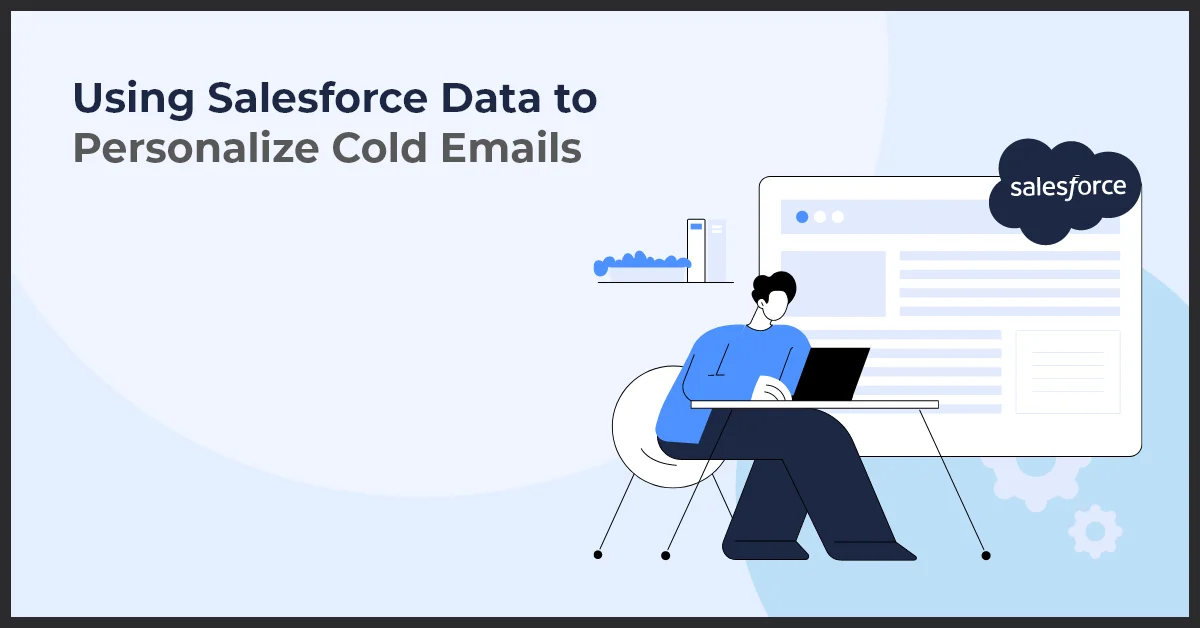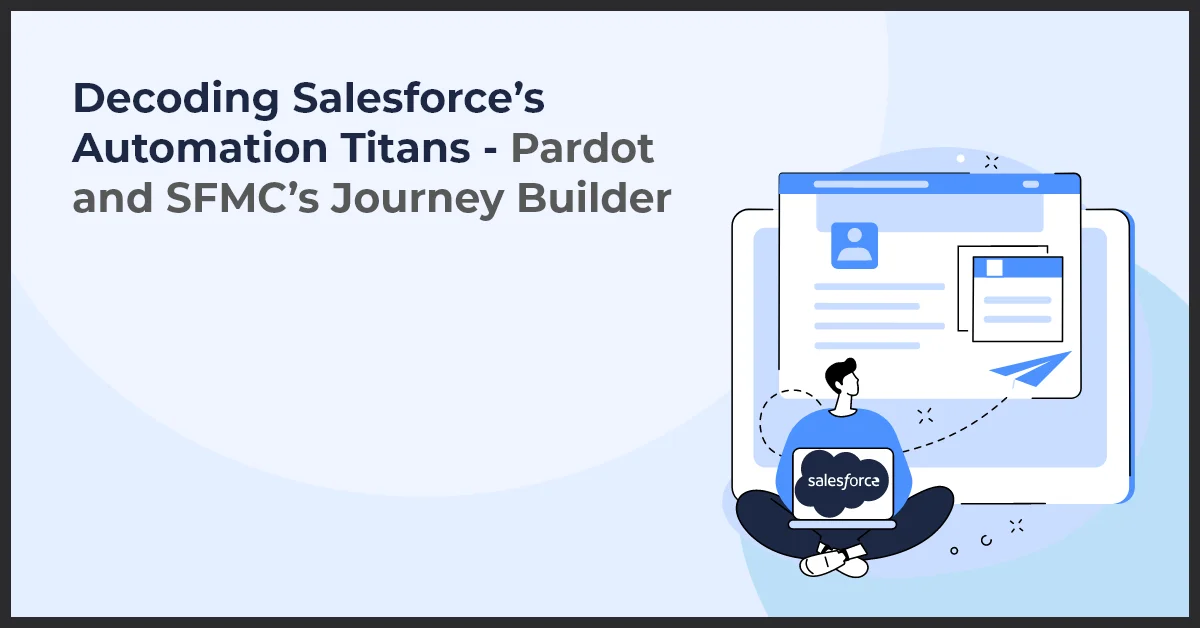What is Salesforce CMS? Why Do You Need It?

Published on: March 17, 2021
Updated on: June 27, 2024
1145 Views
- Salesforce
19 min read
Understanding Content Management Systems (CMS)
A content management system (CMS) is a software tool that allows for the creation, management, and modification of digital content. It plays a crucial role in website and content management, providing businesses with a platform to efficiently organize, publish, and distribute their content.
A CMS is essential because it simplifies the process of content creation and eliminates the need for technical expertise to make updates or changes to the website. It empowers businesses to easily create and manage their content without relying on developers or IT experts.
There are different types of CMS available in the market, catering to varying needs and requirements. The most common types include:
- Traditional CMS: These systems are designed for static websites and require coding knowledge to make changes.
- Enterprise CMS: These systems are suitable for large organizations with complex content management needs, offering advanced features and scalability.
- Headless CMS: These systems decouple the back-end content management capabilities from the front-end presentation, providing flexibility and allowing for content to be displayed across multiple channels.
The choice of CMS depends on the specific goals and objectives of a business. It is important to carefully evaluate the available options before selecting one that aligns with the organization's requirements.
Introduction to Salesforce CMS
In the digital landscape, an efficient Content Management System (CMS) can make all the difference in effectively managing and organizing your content. With Salesforce CMS, you have a powerful tool that seamlessly integrates into the broader Salesforce ecosystem.
Salesforce CMS offers a comprehensive solution for managing content, enabling businesses to create, manage, and deliver engaging content across various channels with ease. By leveraging this innovative CMS, organizations can streamline their content processes, maximize productivity, and enhance customer experiences.
Overview of Salesforce CMS as a content management system within the Salesforce ecosystem
Salesforce CMS is designed to be an integral part of the Salesforce ecosystem, providing a unified platform for managing content across different channels, such as websites, mobile apps, and social media platforms. By harnessing the power of Salesforce CMS, businesses can consolidate their content management efforts, ensuring consistency and coherence across all customer touchpoints.
Overview of Salesforce CMS as a content management system within the Salesforce ecosystem
Salesforce CMS is designed to be an integral part of the Salesforce ecosystem, providing a unified platform for managing content across different channels, such as websites, mobile apps, and social media platforms. By harnessing the power of Salesforce CMS, businesses can consolidate their content management efforts, ensuring consistency and coherence across all customer touchpoints.
Key features and functionalities of Salesforce CMS
Salesforce CMS offers a range of robust features and functionalities that empower businesses to optimize their content management processes. Some of the key features include:
- Drag-and-drop Content Builder: Create and customize content effortlessly with a user-friendly interface that requires no coding knowledge.
- Content Collaboration: Enable multiple users to collaborate and contribute to content creation and management.
- Multi-channel Publishing: Seamlessly publish content to various channels, ensuring consistent brand messaging and timely delivery.
- Content Versioning: Keep track of content revisions, allowing for easy rollback and management of different iterations.
- Content Personalization: Tailor content based on customer preferences and behaviors, enhancing engagement and conversion rates.
These features, among others, make Salesforce CMS a powerful tool for businesses looking to supercharge their content management strategies.
Benefits of Salesforce CMS
Salesforce CMS offers numerous benefits for businesses looking to enhance their content creation, management, and distribution processes.
1. Enhanced Content Creation, Management, and Distribution Processes
With Salesforce CMS, businesses can streamline their content creation process by providing a centralized platform for content creation, editing, and approval. The intuitive interface makes it easy for teams to collaborate and create engaging content that resonates with their target audience.
Additionally, Salesforce CMS provides robust content management capabilities, allowing businesses to organize and categorize their content effectively. The platform offers features like version control, content reuse, and content scheduling, ensuring that businesses can efficiently manage and update their content.
Furthermore, Salesforce CMS enables businesses to distribute their content across various channels seamlessly. With built-in integrations with social media platforms, websites, and mobile apps, businesses can ensure that their content reaches their target audience through their preferred channels.
2. Improved Collaboration and Scalability
Salesforce CMS promotes collaboration among teams by providing a centralized platform where stakeholders can work together on content creation and management. The platform allows multiple users to collaborate in real-time, ensuring that all team members stay on the same page and can provide valuable input.
Moreover, Salesforce CMS offers scalability for businesses that are looking to grow their content operations. The platform can handle large volumes of content, making it suitable for businesses with diverse content needs or those experiencing rapid growth.
With Salesforce CMS, businesses can easily scale their content operations as needed without worrying about performance issues or bottlenecks.
Salesforce CMS and Site Development
Using Salesforce CMS to build and manage websites and digital experiences
When it comes to developing and managing websites and digital experiences, Salesforce CMS offers a robust and efficient solution. With its comprehensive set of features and tools, Salesforce CMS provides businesses with the means to create engaging and interactive websites tailored to their specific needs.
One of the key advantages of using Salesforce CMS for site development is its ability to centralize content management. With Salesforce CMS, businesses can easily store, organize, and publish content across multiple channels and touchpoints, ensuring consistency and streamlined workflows.
Showcasing the flexibility and ease of use of Salesforce CMS for site development
One of the standout features of Salesforce CMS is its intuitive and user-friendly interface that allows even non-technical users to create and manage stunning websites and digital experiences. With its drag-and-drop functionality and customizable page layouts, Salesforce CMS makes it easy to design and update web pages without needing extensive coding knowledge.
Furthermore, Salesforce CMS offers extensive customization options, enabling businesses to tailor their websites to match their brand aesthetic and requirements. From choosing personalized page templates to integrating with third-party applications, Salesforce CMS provides the flexibility needed to create a unique and interactive online presence.
Salesforce CMS in the Cloud
Explaining how Salesforce CMS operates in the cloud environment
The Salesforce CMS operates in a cloud-based environment, utilizing the power and flexibility of cloud computing. This means that all your content management activities are hosted and managed on the cloud, rather than on local servers or infrastructure.
With Salesforce CMS in the cloud, you can easily access and manage your content from anywhere, at any time. There's no need for complex on-premise installations or maintenance. The cloud-based nature of Salesforce CMS provides a seamless and convenient experience for content creators and managers.
Highlighting the advantages of cloud-based content management
Cloud-based content management with Salesforce CMS offers numerous advantages:
- Scalability and Flexibility: With the cloud, you have the ability to scale your content management infrastructure as your needs grow. You can easily add or reduce resources as required, ensuring efficient management of your content.
- Cost Savings: Cloud-based content management eliminates the need for expensive hardware and infrastructure investments. You only pay for the resources you use, making it a cost-effective solution for businesses of all sizes.
- Reliability and Security: Content stored in the cloud is protected by advanced security measures and protocols. With regular backups and redundant systems, your content is safe from data loss or unauthorized access.
- Collaboration and Accessibility: With Salesforce CMS in the cloud, your team can collaborate on content creation and management in real-time, regardless of their location. This fosters a more efficient and productive working environment.
- Automatic Updates: Cloud-based solutions like Salesforce CMS receive regular updates and enhancements, ensuring that you always have access to the latest features and capabilities without any manual intervention.
The cloud-based nature of Salesforce CMS revolutionizes the way businesses manage and distribute their content. It provides a seamless and efficient content management experience, empowering organizations to deliver engaging and personalized experiences to their audience.
Salesforce CMS and Multi-channel Marketing
With Salesforce CMS, you can easily distribute and manage your content across multiple channels, allowing you to reach a wider audience and boost your marketing efforts.
One of the key features of Salesforce CMS is its ability to seamlessly integrate with various channels such as websites, social media platforms, email campaigns, mobile apps, and more. This means that you can create and publish content once, and it will automatically be distributed to all your chosen channels.
This multi-channel distribution capability is especially beneficial for businesses that want to reach their target audience wherever they may be. Instead of manually managing content for each channel, Salesforce CMS streamlines the process, saving you time and effort.
Furthermore, with Salesforce CMS's integration with omnichannel marketing, you can deliver a consistent and personalized experience to your customers across all touchpoints. By utilizing customer data and insights, you can tailor your content to each individual's preferences, ensuring higher engagement and conversion rates.
Omnichannel marketing is crucial in today's digital landscape, as customers expect seamless interactions across different platforms. Salesforce CMS's integration with omnichannel marketing enables you to provide a cohesive brand experience, improving customer satisfaction and loyalty.
In conclusion, Salesforce CMS empowers businesses to effectively implement multi-channel marketing strategies by enabling content distribution across various platforms and integrating with omnichannel marketing. By leveraging this powerful tool, you can expand your reach, engage with your audience, and boost your marketing success.
Salesforce CMS and Cookie Management
Addressing the importance of cookie management for compliance and personalized experiences:
Managing cookies plays a crucial role in ensuring compliance with data privacy regulations and creating personalized experiences for website visitors. Cookies are small files that are stored on a user's device to track and store information about their browsing behavior. They help enable essential functionality, such as remembering user preferences and optimizing website performance.
However, with the increasing emphasis on privacy, it is essential for businesses to implement robust cookie management solutions. This not only ensures compliance with regulations such as the General Data Protection Regulation (GDPR) but also helps in building customer trust and loyalty.
How Salesforce CMS assists in implementing cookie consent and customization:
Salesforce CMS provides powerful features to assist businesses in effectively implementing cookie consent and customization. With Salesforce CMS, you can easily configure and customize cookie consent banners and pop-ups, allowing visitors to grant or deny consent for the use of cookies.
Furthermore, Salesforce CMS offers seamless integration with third-party cookie management platforms, enabling businesses to centralize their cookie management processes. This ensures that cookie preferences and consents are accurately tracked across all channels, providing a personalized experience to visitors based on their explicit consent.
Salesforce CMS and Advertising
When it comes to advertising, Salesforce CMS offers powerful tools and features to help businesses manage and track their advertisements across various channels. Whether you are running digital ads, print ads, or even television ads, Salesforce CMS provides a centralized platform to streamline your advertising efforts.
One of the key advantages of Salesforce CMS is its ability to integrate advertising campaigns with CRM data. By leveraging customer relationship management (CRM) data, businesses can better target their advertisements to specific audiences, increasing the chances of success and return on investment (ROI).
With Salesforce CMS, you can easily analyze and track the performance of your advertising campaigns. You can access real-time analytics and insights to understand which channels are driving the most engagement and conversions. This allows you to make data-driven decisions and optimize your advertising strategy for maximum results.
Additionally, Salesforce CMS enables businesses to personalize their advertisements based on customer preferences and behaviors. By leveraging data from Salesforce CRM, businesses can create tailored ads that resonate with their target audience, increasing the effectiveness of their advertising efforts.
In conclusion, Salesforce CMS provides businesses with the tools and capabilities to effectively manage and optimize their advertising campaigns. By leveraging CRM data, analyzing performance metrics, and personalizing ads, businesses can achieve better targeting, higher ROI, and ultimately drive more conversions.
Salesforce CMS and Personalization
Understanding how Salesforce CMS facilitates personalized content delivery
Salesforce CMS is a powerful content management system that enables organizations to deliver personalized content to their target audience. With Salesforce CMS, businesses can easily create, manage, and deliver content across various channels, including websites, mobile apps, social media platforms, and more. One of the key features of Salesforce CMS is its ability to facilitate personalized content delivery.
By leveraging the data and insights stored within Salesforce CRM, businesses can gain a deeper understanding of their customers and tailor content specifically to their needs and preferences. Salesforce CMS allows marketers to create dynamic content that can be personalized based on a variety of factors, such as a customer's location, browsing history, previous purchases, and demographics.
This personalized content can be delivered in real-time, ensuring that each customer receives a relevant and engaging experience. By delivering personalized content, businesses can increase customer satisfaction, boost engagement, and ultimately drive conversions and sales.
Personalization techniques and approaches with Salesforce CMS
Salesforce CMS offers a range of personalization techniques and approaches that businesses can utilize to deliver targeted content to their audience:
- Segmentation: Businesses can divide their audience into segments based on specific criteria, such as demographics or behavior. This allows them to deliver content that is specifically tailored to each segment's needs and preferences.
- Recommendation engines: Salesforce CMS incorporates powerful recommendation engines that can analyze customer data and provide personalized content recommendations. These recommendations can be based on a customer's previous interactions, browsing behavior, or similar customers' preferences.
- A/B testing: Businesses can use A/B testing to test different versions of content and determine which performs better. This allows them to refine and optimize their personalized content delivery over time.
- Dynamic content: Salesforce CMS enables businesses to create dynamic content that can change based on specific triggers or conditions. For example, a website can display different content to a first-time visitor compared to a returning customer.
These are just a few examples of the personalization techniques and approaches that businesses can leverage with Salesforce CMS. By utilizing these tools and features, organizations can deliver personalized content that resonates with their target audience and drives engagement and conversions.
Salesforce CMS and Analytics
Exploring the analytics and reporting capabilities of Salesforce CMS
When it comes to content management, having access to accurate and insightful analytics is crucial for measuring the success of your strategies. With Salesforce CMS, you can take advantage of powerful analytics tools that provide in-depth data insights.
Leveraging data insights for content optimization and performance tracking
With Salesforce CMS, you can track the performance of your content in real-time and gain valuable insights into how your audience is engaging with your website. These analytics allow you to optimize your content and make data-driven decisions to improve your marketing efforts.
Salesforce CMS and Marketing
When it comes to marketing, Salesforce CMS offers a wide range of opportunities for businesses. Here, we will explore two key aspects of Salesforce CMS and its impact on marketing.
Integration of Salesforce CMS with other Salesforce marketing cloud solutions
Salesforce CMS seamlessly integrates with other Salesforce marketing cloud solutions, enabling businesses to create a cohesive marketing strategy. With the integration of Salesforce CMS, marketers can easily access and manage content across various platforms, such as email campaigns, social media, and advertising.
By incorporating Salesforce CMS into their marketing efforts, businesses can ensure consistency in messaging and branding. Marketers can leverage the power of Salesforce CMS to create and distribute targeted content to specific audiences, leading to higher engagement and conversions.
Leveraging Salesforce CMS for personalized marketing campaigns
Personalization plays a crucial role in today's marketing landscape, and Salesforce CMS empowers businesses to deliver personalized experiences to their customers. Through Salesforce CMS, marketers can create dynamic content that adapts and responds to individual customer preferences and behaviors.
By utilizing customer data and analytics, marketers can tailor their marketing campaigns to specific segments and deliver relevant content at the right time. Salesforce CMS helps marketers build personalized journeys, ensuring customers receive the most relevant messages across various touchpoints.
Furthermore, Salesforce CMS enables marketers to track and measure the effectiveness of their personalized campaigns. With detailed analytics and reporting capabilities, businesses can gain valuable insights into customer behavior and optimize their marketing strategies accordingly.
With the integration of Salesforce CMS and the ability to create personalized marketing campaigns, businesses can drive engagement, enhance customer experiences, and ultimately boost sales.
Salesforce CMS: Revolutionizing Digital Marketing
In today's fast-paced digital marketing landscape, having an efficient content management system is essential to stay ahead of the competition. Salesforce CMS emerges as a game-changer, empowering businesses to seamlessly create, manage, and distribute content across various channels.
Salesforce CMS offers a comprehensive solution that streamlines content creation, collaboration, and publication processes. It allows marketers to dynamically personalize content for different target audiences, ensuring the right message reaches the right customers at the right time.
By centralizing content management, Salesforce CMS enables teams to work collaboratively, saving time and resources. Its intuitive interface empowers non-technical users to easily create and update content, reducing the dependency on IT teams.
Furthermore, with Salesforce CMS's powerful analytics and reporting capabilities, marketers gain valuable insights into content performance and customer engagement. This data-driven approach enables them to optimize content strategies and drive better business results.
With Salesforce CMS, businesses can take their digital marketing efforts to the next level by delivering personalized, relevant, and impactful content throughout the customer journey. Stay ahead of the competition and unlock the full potential of your digital marketing strategy with Salesforce CMS.
You have been using Salesforce CMS for a long time, but you are not getting the desired results. Does that ring a bell? But there is no reason to worry about it. Salesforce CMS is a straight offering and seems to be easy to set up and use.
But that’s not always the case. Or is it? Before we move forward with discussing details about leveraging your CMS in Salesforce Experience Cloud (earlier known as community cloud), let’s have a quick recap.
Salesforce CMS is a customizable Content Management System (CMS) offered by Salesforce that primarily allows you to create and manage the following:
- Creating new content
- Managing existing content
- Defining any new content types
- Managing authors
- Organizing and channeling content
- Distributing the content created
In short, a CMS is like a content library that holds the pieces of content organized on a central platform. They are used to map your company’s content and authorize it for circulation across specific channels.
Now, the question is, what type of content can be managed through Salesforce CMS?
In Salesforce terminology, a content piece is referred to as an object. A content type is defined based on its elements and what purpose each field has on the worldwide web. Moreover, it helps you in understanding what content can be embedded within another piece of content.
You can always add additional content types in your CMS and not stay restricted to News, Document, or Image type objects.
Using CMS Workspaces across different destinations (channels)
Salesforce CMS aims to provide users a secure and straightforward way to manage their content. The essential advantage of using it is that it allows you to present the content at specific destinations.
Just imagine you configure a limited number of channels and distribute content to access a specific audience easily. It might sound like a simple idea, but it is a significant win and a pretty big deal.
You can use Salesforce CMS to populate the following pre-wired channels:
- Salesforce Experience Cloud (earlier known as community cloud)
- Salesforce Commerce Cloud
- Salesforce Marketing Cloud
- Lighting Experience
But that’s not all. You can share the objects outside the pre-wired channels and across different third-party systems with Delivery APIs.
Using Salesforce CMS with Experience Cloud
Salesforce CMS enables you to re-purpose content into different forms rather than duplicating it explicitly. As mentioned earlier, you can populate multiple sites from your CMS to update all the channels simultaneously.
This is most useful when dealing with communities. Salesforce CMS’ can easily embed content from third-party systems to your Salesforce Community as well.
What are the key benefits of using Salesforce CMS?
When Salesforce announced their hybrid CMS, they tried to resolve all customer complaints in the past and incorporated their feedback about managing content systems. There are three main advantages it offers over other CMS’; let’s take a quick look:
1. Easy to Use
Perhaps the most significant advantage Salesforce CMS has to offer is usability. Once you can deploy the solution into your system, you can easily create, manage, and deliver content to different channels.
Once your partners have configured the solution, you can operate with little to no technical expertise and even create custom content types.
You get access to a wide range of pre-set layouts that can be populated with a simple drag and drop function. It enables you to maintain all objects on the site swiftly.
2. Headless and Hybrid
Along with the capabilities that a standalone CMS provides, Salesforce CMS also gives you the flexibility to embed content from third-party systems. It facilitates seamless pairing with Salesforce Experience Cloud and helps you save a lot of time with its in-built features.
It is a headless solution and offers more control over how and where your content is published. Authors can simply create content and deliver it to the wired platforms via Salesforce.
When the capabilities of hybrid and headless systems are packaged in a single solution, the effect becomes more potent. It is expected that by 2022, 80% of all digital platforms will follow a hybrid-headless approach.
3. Speed and Flexibility
Time is of the essence, and any tool that delivers results instantly can match customers’ expectations. Salesforce CMS ticks both the boxes and can be customized as per the customer’s needs.
You can use your data and offer it as a solution to the customers using personalized content preferences. Salesforce CMS allows you to take a CRM record and convert it into high-quality content modified and adapted later as customer’s needs change.
To Wrap Up
To take full advantage of Salesforce CMS, you need to deploy it into your martech stack the right way. Having an expert partner of Salesforce who can help you develop the solutions as per your needs should be at the top of the priority list if you wish to stay ahead of the competition.
To know more about getting started with Salesforce CMS and Experience Cloud solutions, get in touch with our experts today!



